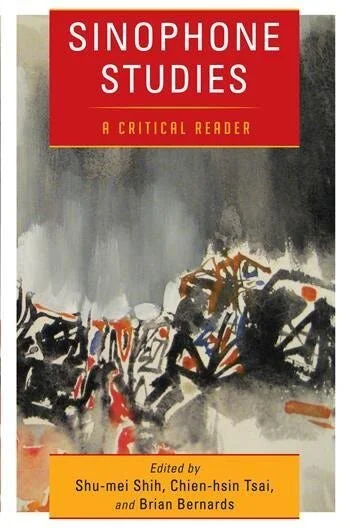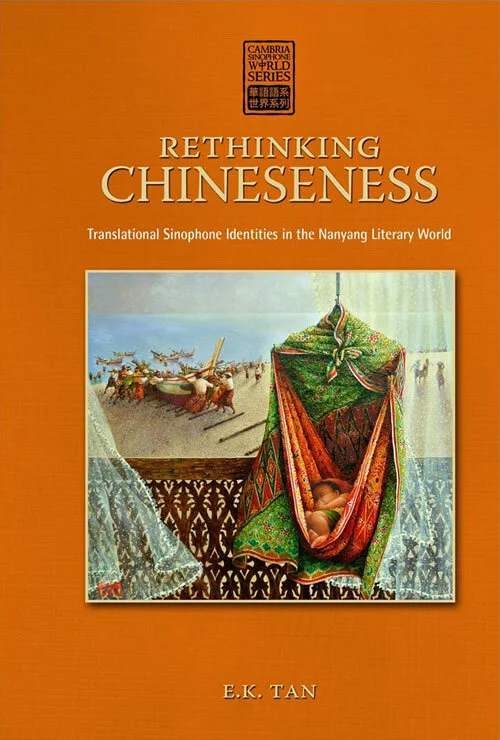Sinophone studies as a framework
-

Edited by Andrea Bachner, Howard Chiang, and Yu-Lin Lee
Sinoglossia
The concept of sinoglossia combines a heteroglossic and heterotopian approach to the critical study of mediated discourses of China and “Chineseness.” -

Edited by Howard Chiang and Shu-mei Shih
Sinophone Studies Across Disciplines: A Reader
This reader presents the latest and most cutting-edge work in Sinophone studies, bringing together both senior and emerging scholars to highlight the interdisciplinary reach and significance of this vital field.
-
Edited by Shu-mei Shih, Chien-hsin Tsai, and Brian Bernards
Sinophone Studies: A Critical Reader
This definitive anthology casts Sinophone studies as the study of Sinitic-language cultures born of colonial and postcolonial influences.
-
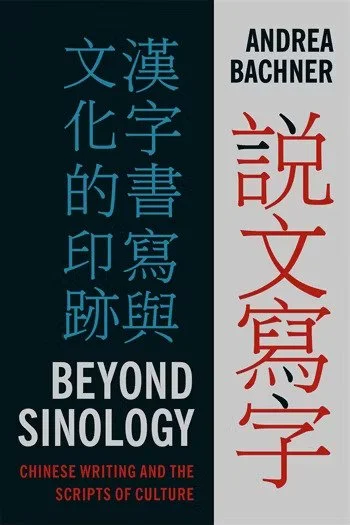
New List Item
Beyond Sinology: Chinese Writing and the Scripts of Culture
The book reflects on the Chinese script to pinpoint the multiple connections between languages, scripts, and medial expressions and cultural and national identities.
Sinophone studies and world literature
-

Edited by Kuei-fen Chiu and Yingjin Zhang
The Making of Chinese-Sinophone Literatures as World Literature
This edited volume advances research on world literature by bringing in new developments in Chinese/Sinophone literatures and adds a much-needed new global perspective on Chinese literary studies beyond the traditional national literature paradigm and its recent critique by Sinophone studies.
-

Ed. by Pei-yin Lin and Wen-chi Li
Taiwanese Literature as World Literature
The volume focuses on three interrelated themes – the framing and worlding ploys of Taiwanese literature, Taiwanese writers' experience of transculturation, and politics behind translating Taiwanese literature.
Sinophone studies and transnational studies
-
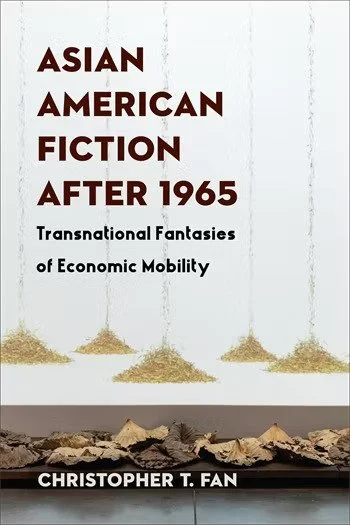
Christopher T. Fan
Asian American Fiction After 1965: Transnational Fantasies of Economic Mobility
In readings of writers including Ted Chiang, Chang-rae Lee, Ken Liu, Ling Ma, Ruth Ozeki, Kathy Wang, and Charles Yu, Fan examines how Asian American fiction maps the immigrant narrative of intergenerational conflict onto the “two cultures” conflict between the arts and sciences.
-

Alexa Huang
Chinese Shakespeares: Two Centuries of Cultural Exchange
The book theorizes competing visions of "China" and "Shakespeare" in the global cultural marketplace and challenges the logic of fidelity-based criticism and the myth of cultural exclusivity.
-

Lily Wong
Transpacific Attachments: Sex Work, Media Networks, and Affective Histories of Chineseness
Wong focuses on the transpacific networks that reconfigure Chineseness, complicating a diasporic framework of cultural authenticity.
-

Mabel Lee and Liu Jianmei
Gao Xingjian and Transmedia Aesthetics
The book demonstrates the extensive reach of Gao Xingjian’s transcultural, transdisciplinary, and transmedia explorations.
-

Sheng-mei Ma
Sinophone-Anglophone Cultural Duet
By focusing on a “Sinophone-Anglophone” relationship rather than a “China-US” one, Sheng-mei Ma eschews realpolitik, focusing on the two languages and the cross-cultural spheres where, contrary to Kipling’s twain, East and West forever meet, like a repetition compulsion bordering on neurosis over the self and its cultural other.
-

Shu-mei Shih
Visuality and Identity: Sinophone Articulations across the Pacific
Shu-mei Shih inaugurates the field of Sinophone studies in this vanguard excursion into sophisticated cultural criticism situated at the intersections of Chinese studies, Asian American studies, diaspora studies, and transnational studies.
Sinophone studies and gender studies
-

Ed. Hongwei Bao and Yahia Zhengtang Ma
Queer Literature in the Sinosphere
The book is the most up-to-date English-language study of lesbian, gay, bisexual, transgender, and queer (LGBTQ+) themed literature and culture in the Chinese-speaking world.
-
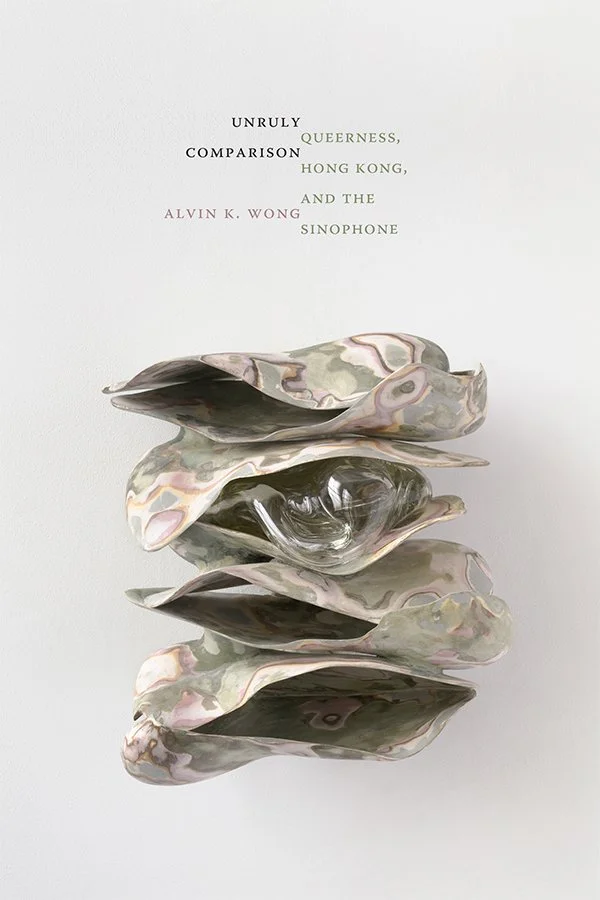
Alvin K. Wong
Unruly Comparison Queerness, Hong Kong, and the Sinophone
The book examines queerness in Hong Kong through a transdisciplinary analysis of Sinophone literature, cinema, visual culture, and civil society.
-

Ed. Howard Chiang, Alvin K. Wong
Keywords in Queer Sinophone Studies
The book presents a definitive collection of original contributions, which are both theoretically and empirically grounded and cross-disciplinary in nature. Individual chapters offer an in-depth study of new empirical data and case studies, covering keywords such as transpacific, viscerality, fandom, postcoloniality, ethnicity and activism.
-

Howard Chiang
Transtopia in the Sinophone Pacific
Chiang brings Sinophone studies to bear on trans theory to deconstruct the ways in which sexual normativity and Chinese imperialism have been produced through one another.
-

Howard Chiang
After Eunuchs: Science, Medicine, and the Transformation of Sex in Modern China
Chiang traces the genealogy of sexual knowledge from the demise of eunuchism to the emergence of transsexuality, showing the centrality of new epistemic structures to the formation of Chinese modernity.
-

Edited By Howard Chiang, Ari Larissa Heinrich
The Sinophone framework emphasises the diversity of Chinese-speaking communities and cultures, and seeks to move beyond a binary model of China and the West. Indeed, this strikingly resembles attempts within the queer studies movement to challenge the dimorphisms of sex and gender.
-

Zoran Lee Pecic
New Queer Sinophone Cinema: Local Histories, Transnational Connections
Examining queerness in films produced in the PRC, Taiwan and Hong Kong, the book merges the Sinophone with the queer, theorising both concepts as local and global, homebound as well as diasporic.
Sinophone studies and film studies
-

Ed. Chris Berry, Wafa Ghermani, Corrado Neri, Ming-yeh Rawnsley
Taiwanese-Language Cinema: Rediscovered and Reconsidered
The book presents diverse approaches to the vibrant commercial film industry known as Taiwanese-language cinema (taiyupian).
-

Christopher Brown
Mapping Taiwanese Cinema, 2008-20: Environments, Poetics, Practice
Drawing on cinema, cartography, and cultural studies, Christopher Brown argues that by refocusing attention on how films are shaped through a process of construction, the tradition of film poetics enables us to think about Taiwanese cinema differently: as a form of mapping.
-

Nicholas de Villiers
Cruisy, Sleepy, Melancholy: Sexual Disorientation in the Films of Tsai Ming-liang
Nicholas de Villiers argues that Tsai expands and revises the notion of queerness by engaging with the sexuality of characters who are migrants, tourists, diasporic, or otherwise displaced.
-

Edited By Peng Hsiao-yen, Ella Raidel
The Politics of Memory in Sinophone Cinemas and Image CultureAltering Archives
Sinophone cinemas and image production function as archives, with the capability of reinterpreting the multiple dimensions of past and present. -

Christopher Lupke
The Sinophone Cinema of Hou Hsiao-hsien: Culture, Style, Voice, and Motion
This book offers important information for those particularly interested in the society and politics of postwar Taiwan and Sinophone culture in general. -

Editors: Audrey Yue, Olivia Khoo
Sinophone Cinemas
Sinophone Cinemas considers a range of multilingual, multidialect and multi-accented cinemas produced in Chinese-language locations outside mainland China. It showcases new screen cultures from Britain, Hong Kong, Taiwan, Singapore and Australia. -

Ed. Paul G. Pickowicz and Yingjin Zhang
Locating Taiwan Cinema in the Twenty-First Century
This book probes many crucial controversies: What are Taiwan’s meaningful cultural and historical connections to Japan? How do Taiwanese filmmakers and audiences feel about mainland China? How does Taiwan cinema deal with environmental issues, animal rights, human trafficking, sexuality, and the challenges facing ethnic minorities?
-

Beth Tsai
Taiwan New Cinema at Film Festivals
Through utilising in-depth case studies of films by Taiwan-based directors: Tsai Ming-liang, Zhao Deyin and Hou Hsiao-hsien, Tsai discusses how Taiwan New Cinema represents a struggling configuration of the ‘nation’, brought forth by Taiwan’s multilayered colonial and postcolonial histories. -

Stephen Teo
Chinese Martial Arts Cinema: The Wuxia Tradition
The book unveils rich layers of the wuxia tradition as it developed in the early Shanghai cinema in the late 1920s, and from the 1950s onwards, in the Hong Kong and Taiwan film industries.
-
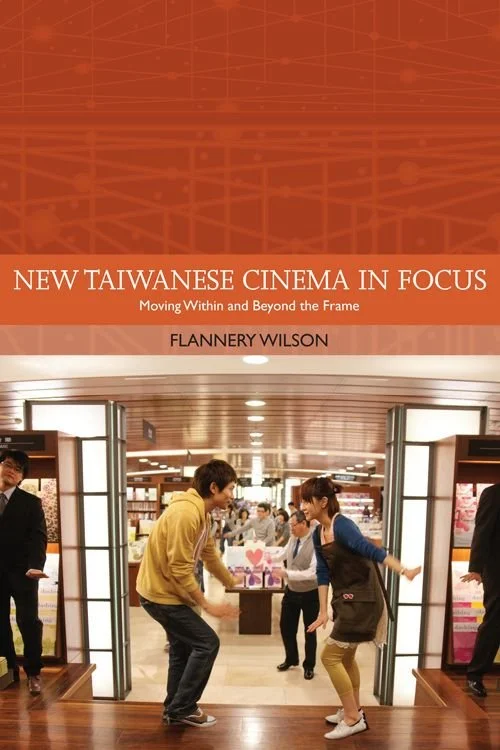
Flannery Wilson
New Taiwanese Cinema in Focus: Moving Within and Beyond the Frame
As the case studies in this book demonstrate, filmmakers such as Hou Hsiao-hsien, Edward Yang, Tsai Ming-liang, and Ang Lee each engage with international audience expectations.
-

Ed. Kenneth Chan, Andrew Stuckey
Sino-Enchantment: The Fantastic in Contemporary Chinese Cinemas
The book is the first work in English to approach this recent explosion of fantastic film in Chinese cinemas, where each re-envisioning of the form is determined by cultural, economic, political and technological factors to produce fresh inventions and creative reinventions of familiar narratives, characters and tropes.
-

Brian Hu
Worldly Desires: Cosmopolitanism and Cinema in Hong Kong and Taiwan
This book looks at the studios, films and policies that charted the transnational vision of Hong Kong and Taiwan, two places with an uneasy relationship to the idea of nationhood.
-

Wendy Larson
Zhang Yimou: Globalization and the Subject of Culture
Larson argues that the films do not uncritically promote nationalism as some argue, but rather that they probe the possibilities for and limitations of culture in a globally-situated China.
Sinophone studies and Mahua literature
-
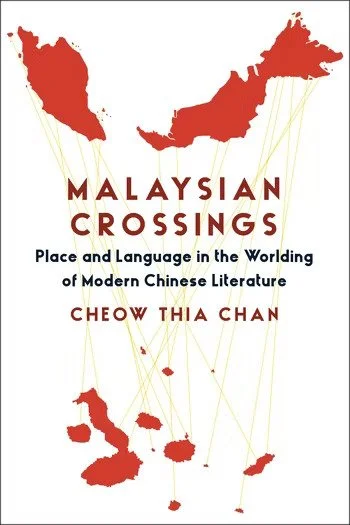
Cheow Thia Chan
Malaysian Crossings: Place and Language in the Worlding of Modern Chinese Literature
Highlighting Mahua literature’s distinctive mode of evolution, Cheow Thia Chan demonstrates that authors’ grasp of their marginality in the world-Chinese literary space has been the impetus for—rather than a barrier to—aesthetic inventiveness.
-

Brian C. Bernards
Writing the South Seas: Imagining the Nanyang in Chinese and Southeast Asian Postcolonial Literature
Writing the South Seas explains why Nanyang encounters, neglected by most literary histories, should be considered crucial to the national literatures of China and Southeast Asia.
-
E. K. Tan
Rethinking Chineseness: Transnational Sinophone Identities in the Nanyang Literary World
This book examines the relationship between the Nanyang Chinese, their original homelands (Borneo, Malaysia and Singapore) and their imaginary homeland (China) through the works of writers such as Kuo Pao Kun, Chang Kuei-hsing, and Vyvyane Loh.
-

Alison M. Groppe
Sinophone Malaysian Literature: Not Made in China
By analyzing the literary texts of several of the most influential contemporary Malaysia-born, Chinese-language authors, Groppe shows how the texts’ complex explorations of sentimental attachments, cultural contexts, and sources of power form the basis for a contested, fractured, unstable, and yet enduring Chinese Malaysian identity.
Sinophone studies and Taiwanese literature
-

Ed. Michael Berry and Kuei-fen Chiu
The Wu Ming-yi Companion: Literature, Environment, and Translation through Compound Eyes
This volume situates Wu’s work within the broader contexts of world literature, Sinophone studies, and environmental humanities, exploring his engagement with indigenous narratives, transnational ecocriticism, and Taiwan’s complex colonial history.
-
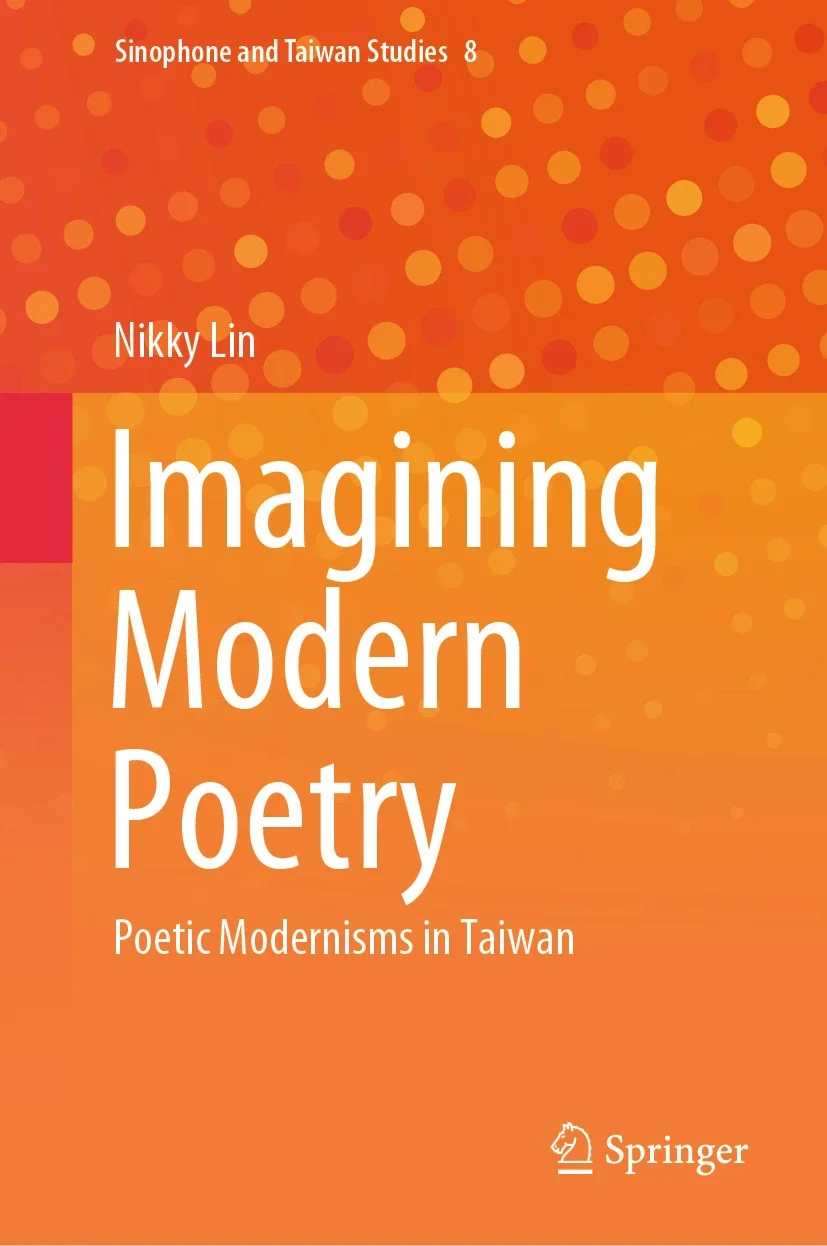
Nikky Lin
Imagining Modern Poetry: Poetic Modernisms in Taiwan
This book offers an in-depth discussion of the evolution of modernist poetry in Taiwan, with a focus on periods preceding and following World War II, and contextualizes the movement within the broader frameworks of Western, Japanese, and Chinese modernism. -
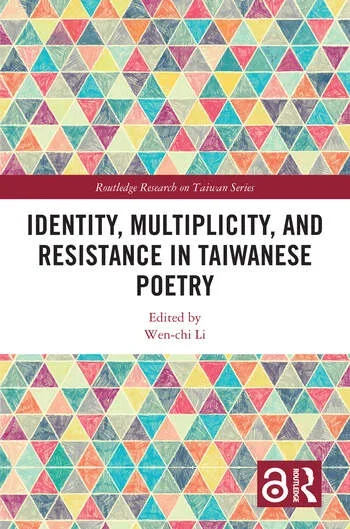
Ed. by Wen-chi Li
Identity, Multiplicity, and Resistance in Taiwanese Poetry
The book explores how Taiwanese poets conceptualize their identities, employing multiple voices to challenge political hegemony and re-evaluate Taiwan’s colonial legacy and nationalism.
-
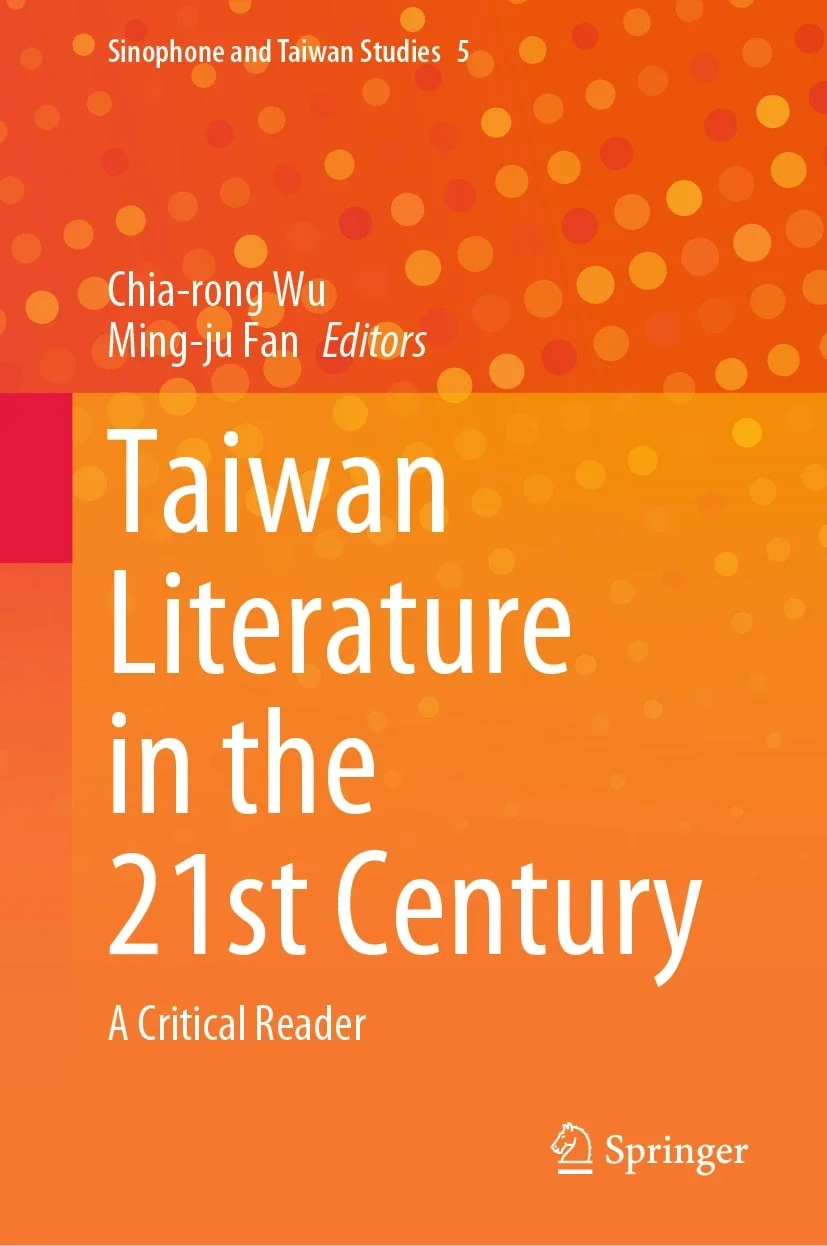
Ed. by Chia-rong Wu, Ming-ju Fan
Taiwan Literature in the 21st Century: A Critical Reader
This collection of original essays integrates and expands research on Taiwan literature because it includes both established and young writers. It not only engages with the evolving trends of literary Taiwan, but also promotes the translocal consciousness and cultural diversity of the island state and beyond.
-

Chia-rong Wu
Remapping the Contested Sinosphere: The Cross-cultural Landscape and Ethnoscape of Taiwan
This book speaks to the current framework of Sinophone studies by focusing on modern Taiwan and its entanglement with cultural China, Chinese diasporas, nativist trend, and Aboriginal consciousness.
-

Chia-rong Wu
Supernatural Sinophone Taiwan and Beyond
This first scholarly monograph focusing on the literary and cultural geography of Taiwan through a Sinophone lens is therefore a step toward filling the gap.
-

Margaret Hillenbrand
Literature, Modernity, and the Practice of Resistance
This book is a cross-cultural, interdisciplinary study which compares responses to modernity in the literary cultures of Japan and Taiwan, 1960-1990.
Sinophone studies and Chinese literature
-
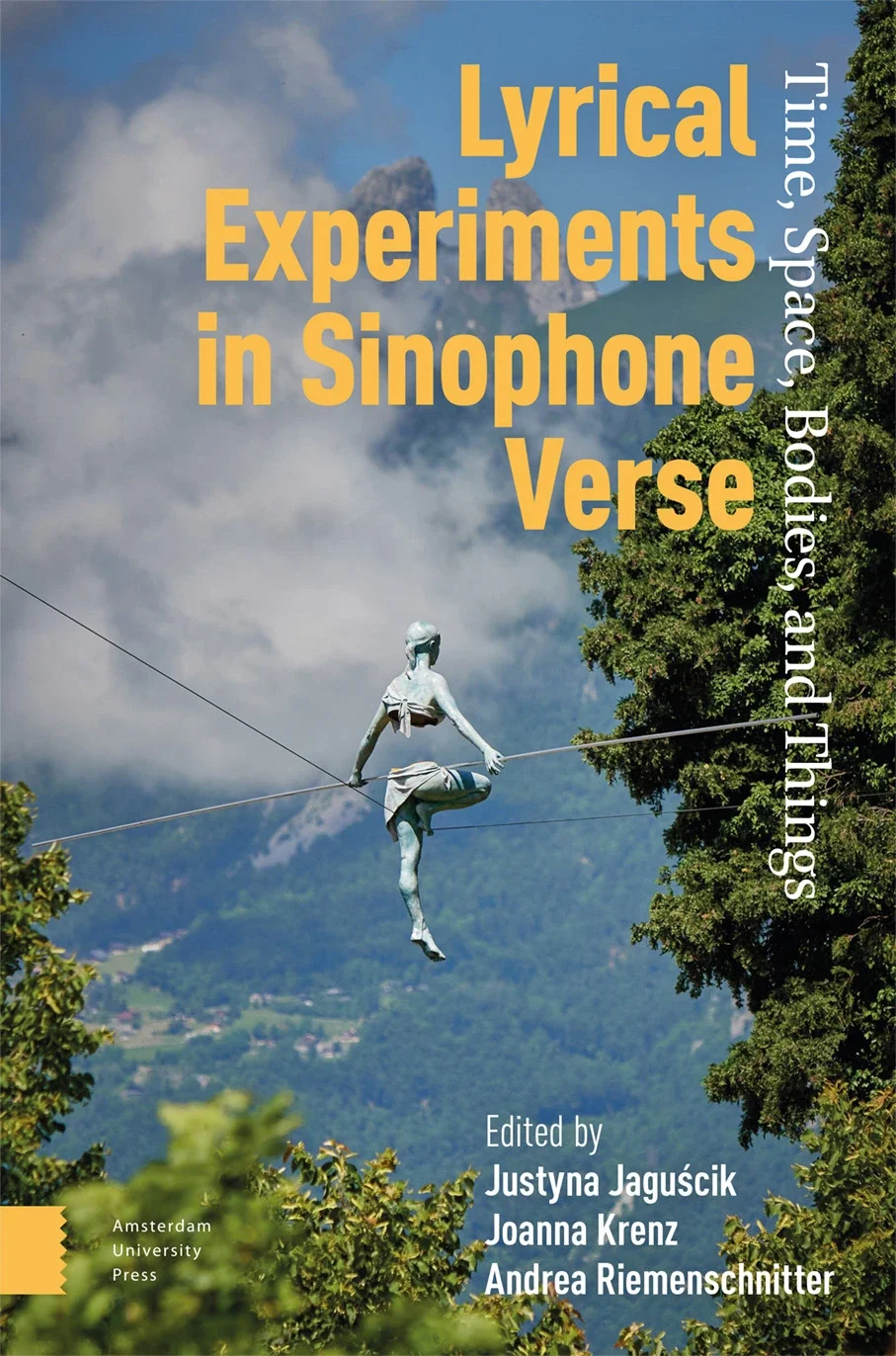
Ed. Justyna Jaguscik, Joanna Krenz, and Andrea Riemenschnitter
Lyrical Experiments in Sinophone Verse: Time, Space, Bodies, and Things
This volume identifies three foci in contemporary poetry discourses: formal crossovers, multiple realities, and liquid boundaries.
-

Ed. by Andrea Riemenschnitter, Jessica Imbach, and Justyna Jaguscik
Sinophone Utopias: Exploring Futures Beyond the China Dream
This book highlights those reconceptualizations that reflect on flexible blueprints of future community life or, more openly, forms of togetherness, that are suitable for continuous (re)negotiation rather than supporting fixed, top-down enforced models. -
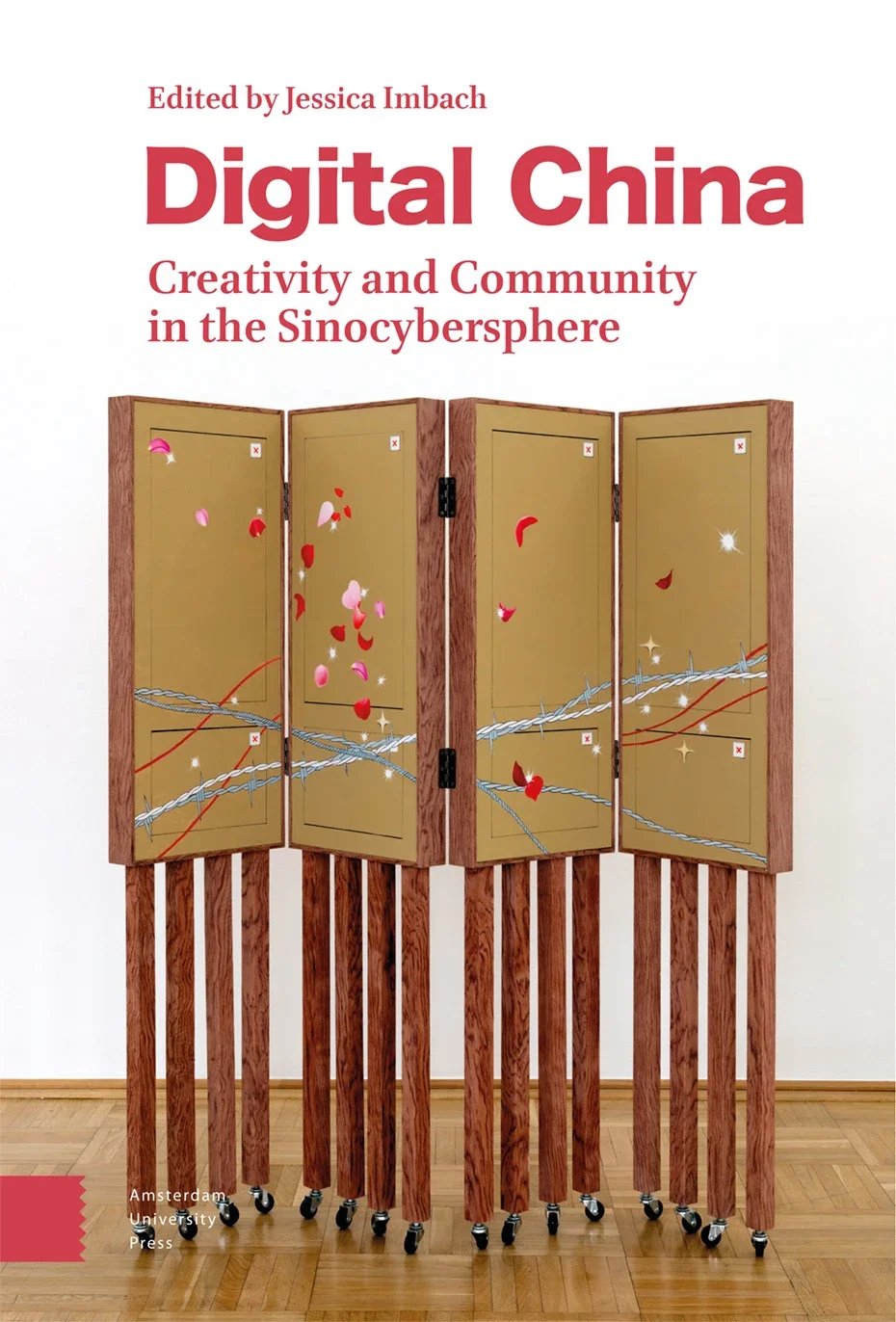
Ed. Jessica Imbach
Digital China: Creativity and Community in the Sinocybersphere.
This volume examines this development through the notion of the Sinocybersphere - the networked spaces across the globe that not only operate on the Chinese script, but also imaginatively negotiate the meanings of Chinese culture in the digital age.
-

Michel Hockx
Michel Hockx describes in detail the types of Chinese literature taking shape right now online and their novel aesthetic, political, and ideological challenges.
-

Mingwei Song
Fear of Seeing: A Poetics of Chinese Science Fiction
Song argues that recent Chinese science fiction is united by a capacity to illuminate what had been invisible—what society had chosen not to see; what conventional literature had failed to represent.
-

Clara Iwasaki
Rethinking the Modern Chinese Canon: Refractions across the Transpacific
Iwasaki looks at four writers, Xiao Hong, Yu Dafu, Lao She, and Zhang Ailing, through what she calls refractive relations. Following transpacific circuits, these writers and texts move not simply from periphery to center, or from obscurity to canon, but back and forth between literary, linguistic, and national communities.
Sinophone studies and Thai studies
-

Rebecca Ehrenwirth
Zeitgenossische Sinophone Literatur in Thailand (Contemporary Sinophone Literature in Thailand)
Rebecca Ehrenwirth prasentiert in ihrem Band zwei zeitgenossische Autoren der dritten Welle der sinophonen Literatur in Thailand.
Sinophone studies and translation studies
-

Ed. Simona Gallo and Martina Codeluppi
Mother Tongues and Other Tongues: Creating and Translating Sinophone Poetry
This book analyzes contemporary translingual Sinophone poetry and discusses its creative processes and translational implications, along with their intersections. -

Ed. by Cosima Bruno, Lucas Klein, Chris Song
The Bloomsbury Handbook of Modern Chinese Literature in Translation
The book provides new tools for reading and appreciating modern and contemporary Chinese literature within the global context of its translation, offering in-depth studies of eminent Chinese authors and their literary masterpieces in translation.
-
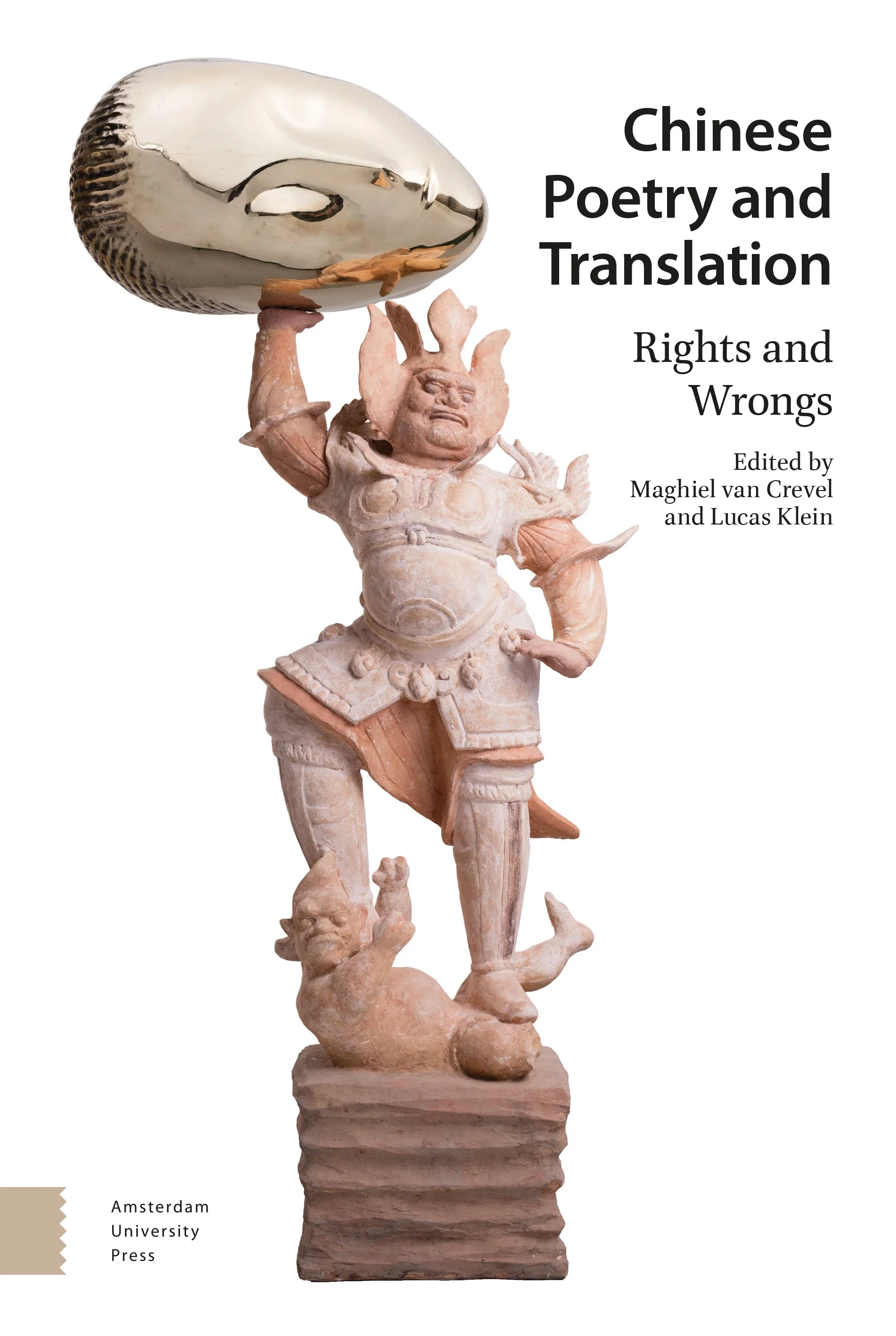
Ed. Maghiel van Crevel, and Lucas Klein
Chinese Poetry and Translation: Rights and Wrongs
Pushing past oppositions that still too often restrict discussions of translation-form versus content, elegance versus accuracy, and "the original" versus "the translated" - this volume brings a wealth of new thinking to the interrelationships between poetry, translation, and China.
Sinophone studies and borderland
-

Robin Visser
Questioning Borders: Ecoliteratures of China and Taiwan
Robin Visser compares literary works by Bai, Bunun, Kazakh, Mongol, Tao, Tibetan, Uyghur, Wa, Yi, and Han Chinese writers set in Xinjiang, Tibet, Inner Mongolia, Southwest China, and Taiwan, sites of extensive development, migration, and climate change impacts.
Sinophone studies and sensory studies
-

Astrid Møller-Olsen
Sensing the Sinophone: Urban Memoryscapes in Contemporary Fiction
It explores the connection between elusive memories and material cityscapes through the matrix of the senses.
Sinophone studies and visual arts
-

Margaret Hillenbrand
On the Edge: Feeling Precarious in China
The Book probes precarity in contemporary China through the lens of the dark and angry cultural forms that chronic uncertainty has generated.
-
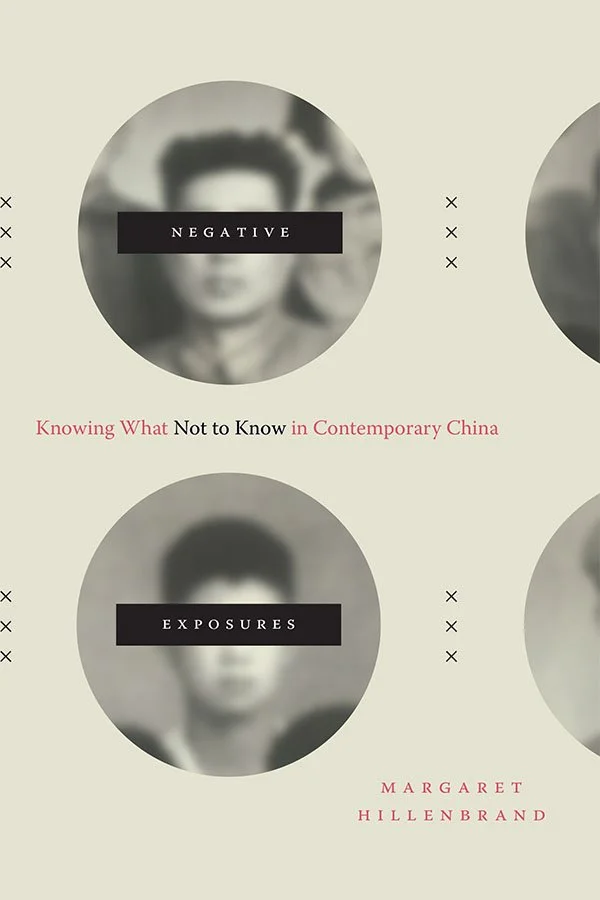
Margaret Hillenbrand
Negative Exposures: Knowing What Not to Know in Contemporary China
Hillenbrand investigates the erasure of key aspects of such momentous events as the Nanjing Massacre, the Cultural Revolution, and the Tiananmen Square protests from the Chinese historical consciousness, not due to amnesia or censorship but through the operations of public secrecy.
-

Erin Y. Huang
Urban Horror: Neoliberal Post-Socialism and the Limits of Visibility
Drawing on Marxist phenomenology, geography, and aesthetics from Engels and Merleau-Ponty to Lefebvre and Rancière, Huang traces the emergence and mediation of what she calls urban horror—a sociopolitical public affect that exceeds comprehension and provides the grounds for possible future revolutionary dissent.
